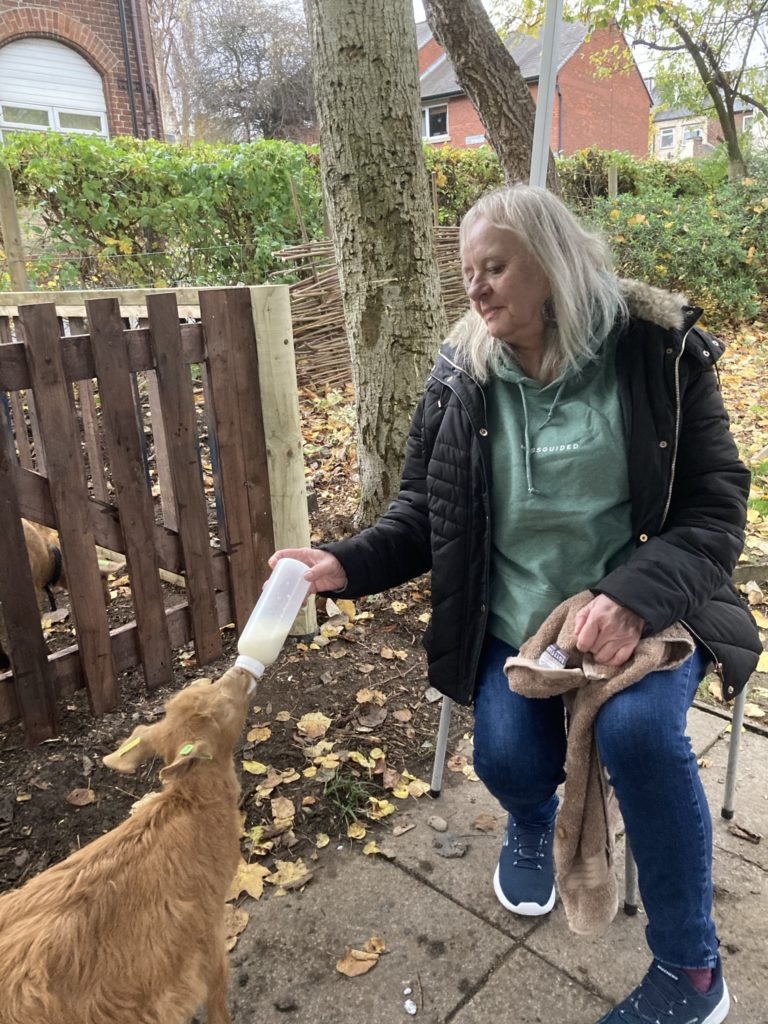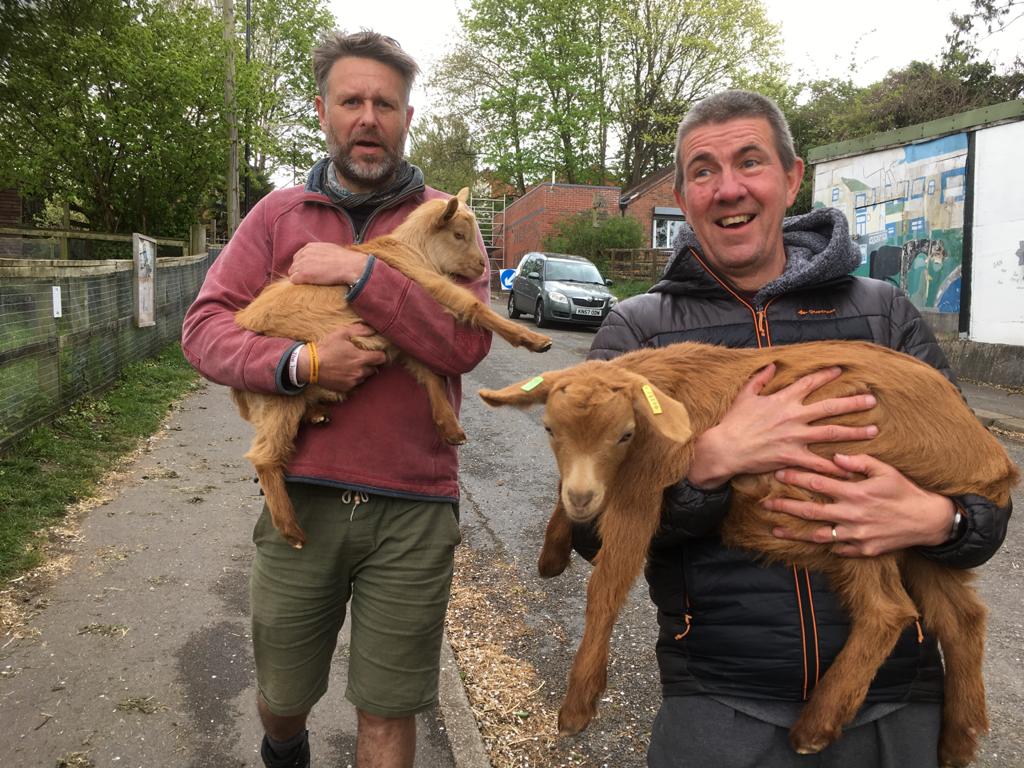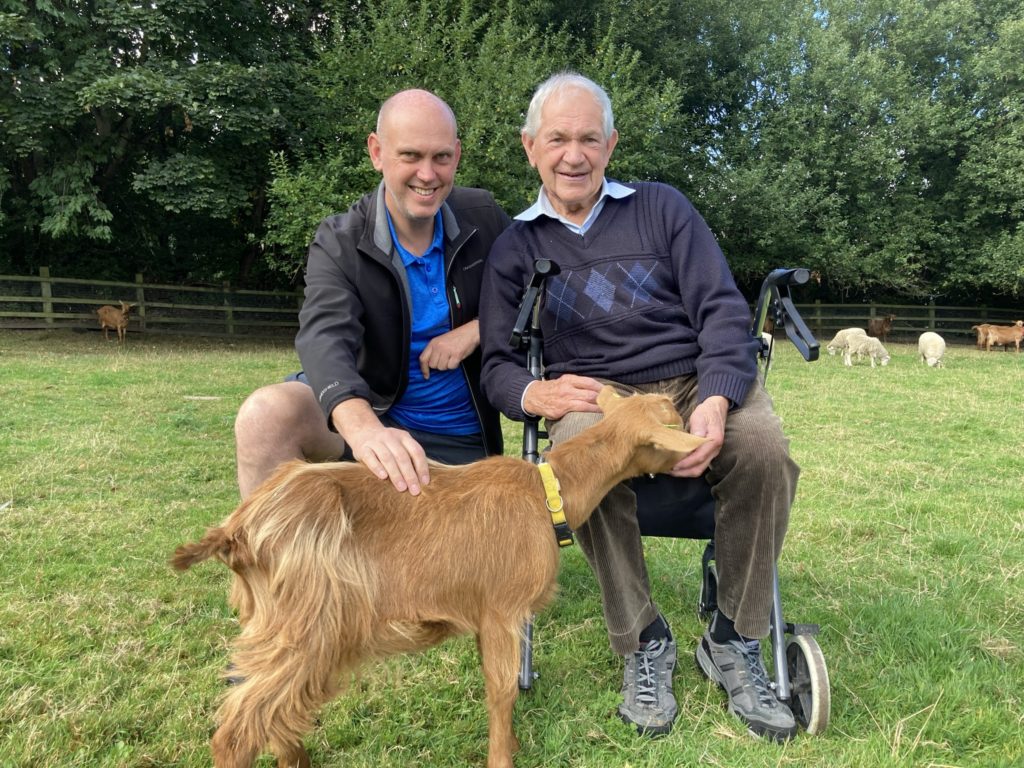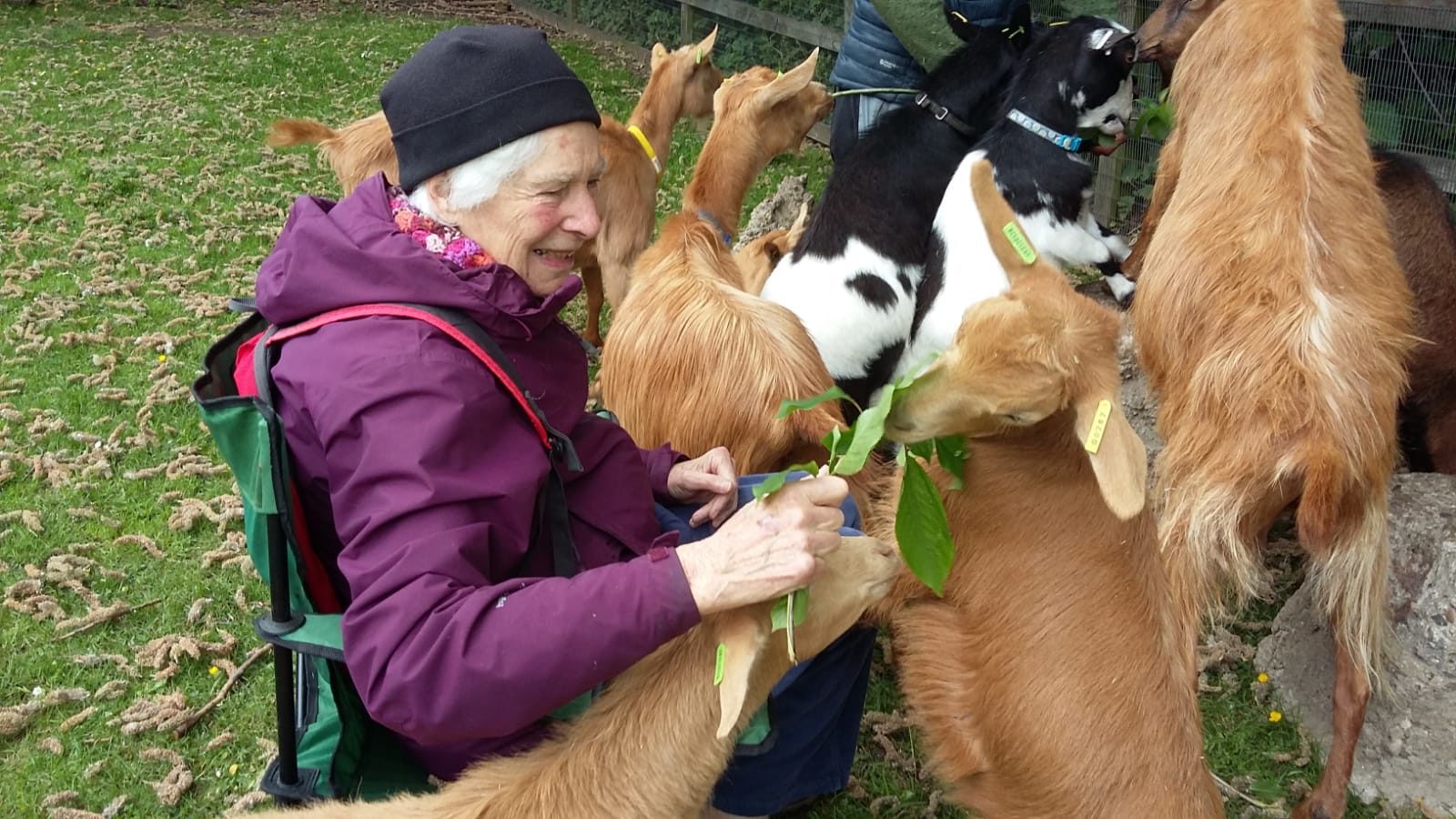Summary: People with dementia can sometimes struggle to communicate and build relationships with others, especially in care environments. Heeley City Farm, located in Sheffield, runs animal-assisted therapy sessions called ‘Farming Comes to You’, that help bring warmth, connection, and community to people with dementia, their carers and families.
The Farming Comes to You sessions have had an immense impact on the symptoms, behaviour, and communication of people with dementia, their close relatives and friends, care home staff, young people, and the wider community.
Lee Pearse, Project Lead
The daily experiences of people with severe dementia can often be limited to caring activities like being cleaned, fed, or changed. As a result, they can often lack things we take for granted such as meaningful physical contact, holding hands, and just being with other people.
After 15 years of caring for my mum, who had rare dementia from an early age, I’m very familiar with the realities of life for a person with severe dementia. I started the dementia department at Heeley City Farm to open the farm up to dementia communities and bring them some of the warmth and connection that can sometimes be lacking in everyday care environments.
We began taking animals to care homes informally and quickly saw that the sessions had a huge impact on residents. At that point I knew we needed to delve deeper into animal therapy. We applied for a community grant from the Dunhill Medical Trust in the hope that it would give us the time, space, and framework we needed to investigate how animal-based therapies could help people with dementia and their communities.
We have delivered over 100 animal-assisted therapy sessions, despite the pandemic
Since 2019, we’ve had a dedicated team working on the Farming Comes to You (FCTY) project including myself as the project lead, Rachel Gilbert and Susie Dufort who deliver all the face-to-face sessions, and Andrew Pearse who manages communications and publicity for the project.
As a result of the funding from the DMT and the hard work of my colleagues, we’ve been able to deliver over a hundred FCTY sessions. Even during the COVID-19 pandemic, we continued running the project in any way we could – including taking the animals to the doorstep, sending videos of the animals, and doing drive-in therapy sessions.
Working with the DMT has been great because of the open communication, support, and relationship we’ve had. They’ve also been very flexible, particularly when COVID-19 hit and we weren’t sure if the project could continue.
Animal-assisted therapy brings real connection
The FCTY sessions have had a huge impact on the symptoms of people with dementia. Animal-assisted therapy is incredibly calming for participants and the sessions bring a positive sense of togetherness around the animals.
I always remember one FCTY session when we arrived at a care home and a lady was very upset. My colleague went over, held her hand and showed her a rabbit. Immediately, she stopped shouting and smiled. For the two hours we were there she didn’t cry or display any signs of anxiety.
Spending time with the animals gives people with dementia contact and warmth beyond just being cared for. It’s a different type of touch that is incredibly valuable, especially for people who struggle to connect and communicate in other ways. I think it’s been particularly important during the pandemic when people have had limited contact.




It isn’t just about whether someone wants to hold a guinea pig or see a goat, it’s bigger than that. One minute we’re helping them hold the guinea pig and the next, they’re holding our hands and we have a real human connection.
Lee Pearse
Building communities around people with dementia
As a part of the community-building aspect of the project, we have involved other groups from the farm including adults with learning difficulties and disabilities and disadvantaged young people. Some of our young people have participated in the FCTY sessions regularly, allowing them to build relationships with people with dementia and become young dementia advocates.
The involvement of young people, some as young as 11, has brought a beautiful new dimension to the project.
Lee Pearse
Sharing what we’ve learned
The FCTY project has helped raise the profile of community farms and I regularly get requests from care homes hundreds of miles away! We want to bring our FCTY methodology to other farms, so that FCTY sessions are available across the country. That’s why we’re developing a FCTY training course that will allow practitioners at other farms to deliver sessions in their local areas.
Throughout the project, we’ve worked with medical students, who have bought animal-assisted therapy closer to the academic world. Now we’re working on an academic paper about the impacts of animal-assisted therapy on people with dementia with the University of Sheffield Medical School. We hope that in the future, FCTY will be a recognised therapy available through social prescribing networks.
Find out more
Read more about Heeley City Farm dementia projects and other activities and events.
Keep up-to-date with Heeley City Farm by following it on Twitter and Facebook.

